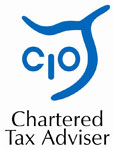George Osborne has laid his cards on the table and we now know what the tax landscape looks like for 2014-15 (subject to any changes before the Finance (No. 2) Bill 2013-14 receives Royal Assent). Here’s a list of the main changes:
- For those born after 5 April 1948 the personal tax allowance is £10,000. It was also announced that from 6 April 2015 this would increase to £10,500.
- The much publicised change to the taxation of salaried members of Limited Liability Partnerships is confirmed. Ongoing vigilance is required to ensure that salaried members’ tax status does not change from self-employed to PAYE by default.
- All partnerships will be affected by new rules that will allow HMRC, in certain circumstances, to reverse profit or loss sharing between partners if one or more of the partners is a “non-individual” – for example a limited company.
- From April 2014 employers can claim the new £2,000 Employment Allowance that can be used to set off against their employers’ secondary National Insurance Contributions.
- From 27 March 2014 and ongoing throughout the 2014-15 tax year, a number of relaxations are being introduced to make the withdrawal of benefits from pension funds more flexible.
- Any person who is eligible to draw from their pension funds should now take advice as a matter of urgency to determine their best course of action.
- The Annual Investment Allowance is increased from 6 April 2014 (1 April if a company) to £500,000 (previously £250,000). The new ceiling will apply until 31 December 2015 when the limit could reduce to £25,000. Careful planning is required as, clearly, this measure is intended to encourage businesses to bring forward capital investment during this generous tax relief window. Again planning is required as transitional measures may reduce your entitlement to relief if your business year end date straddles the 6 April 2014 (1 April if a company).
- Loans provided by an employer to an employee, that are interest free or low cost, did not generate taxable benefits if they were below £5,000. From April 2014 this limit is increased to £10,000.
- Child care support is increased to 20% of costs capped at a maximum total cost per child of £10,000. All age groups will be brought into this scheme by autumn 2015.
- From 6 April 2014 the Private Residence Relief final period exemption for Capital Gains Tax purposes is reduced to 18 months, previously it was three years.
Contact David Crossley
- 102/104 Widnes Road, Widnes, Cheshire, WA8 6AX
- 0151 420 6666
- david@hollandandcompany.co.uk
- Find us on map
- Contact Form
Recent Blog Entries
- 27 Oct 2022Mini-Budget u turn” We are living in one of the strangest periods in history where the Government introduces a n...
- 16 Mar 2022Tax when you sell propertyYou may be liable to pay Capital Gains Tax if you make a profit (‘gain’) when you sell (or...
- 10 Jan 2017Good excuse for being late submitting your tax return ?With the 31 January tax return deadline just around the corner, HMRC has revealed the ‘Top 10 oddest...
Twitter Feed

David K Crossley CTA, ATT
Member of the Chartered Institute of Taxation
